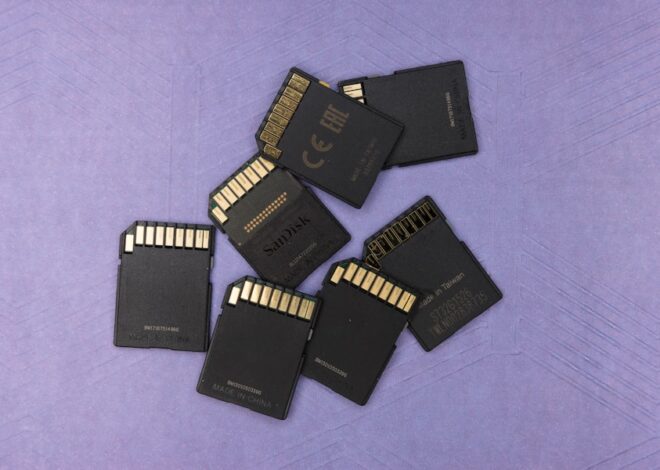
The Pros and Cons of Different Backup Storage Types
Backup storage is an essential part of any organization’s data management strategy. There are several types of backup storage options available, each with its own set of pros and cons. Understanding the different types of backup storage can help businesses make informed decisions about which option is best for their specific needs.
Pros and Cons of External Hard Drives
External hard drives are a popular choice for backup storage due to their affordability and ease of use. They offer a large amount of storage space and can be easily connected to a computer or server for quick and convenient backups. However, external hard drives are susceptible to physical damage and can fail without warning, potentially leading to data loss. Additionally, they are not as secure as other backup storage options, as they can be easily stolen or misplaced.
On the other hand, external hard drives are a cost-effective solution for small businesses or individuals who need a simple and reliable backup storage option. They are also easy to transport, making them a convenient choice for those who need to access their backups on the go. Overall, external hard drives are a good choice for those who prioritize affordability and convenience over security and reliability.
Pros and Cons of Cloud Storage
Cloud storage has become increasingly popular in recent years due to its flexibility and scalability. It allows businesses to store their data on remote servers, eliminating the need for physical hardware and reducing the risk of data loss due to hardware failure. Cloud storage also offers automatic backups and the ability to access data from anywhere with an internet connection. However, cloud storage can be more expensive than other backup storage options, especially for businesses with large amounts of data. There are also concerns about data security and privacy, as storing data on remote servers can make it more vulnerable to hacking or unauthorized access.
Despite these drawbacks, cloud storage is a convenient and reliable option for businesses that need to store large amounts of data and require easy access to their backups from anywhere. It is also a scalable solution, allowing businesses to easily increase their storage capacity as their needs grow. Overall, cloud storage is a good choice for businesses that prioritize flexibility and accessibility over cost and security.
Pros and Cons of Network Attached Storage (NAS)
Network Attached Storage (NAS) is a dedicated file storage device that provides local network access to a group of users. It offers a centralized location for storing and sharing files, making it a convenient option for businesses with multiple users who need to access the same data. NAS devices also offer data redundancy and can be easily expanded to accommodate growing storage needs. However, NAS devices can be expensive to purchase and maintain, making them less cost-effective for small businesses or individuals. They also require technical expertise to set up and manage, which may be a barrier for those with limited IT resources.
Despite these drawbacks, NAS devices are a reliable and efficient option for businesses that require centralized file storage and easy access to their data. They offer high performance and data redundancy, making them a secure choice for businesses with critical data storage needs. Overall, NAS devices are a good choice for businesses that prioritize performance and reliability over cost and simplicity.
Pros and Cons of Tape Backup
Tape backup has been a popular choice for long-term data storage due to its low cost and high capacity. It offers a reliable and secure way to store large amounts of data, making it a good choice for businesses with strict data retention requirements. However, tape backup can be slow and cumbersome, especially when it comes to retrieving specific files or data sets. It also requires regular maintenance and monitoring to ensure that the tapes are properly stored and maintained.
Despite these drawbacks, tape backup is a cost-effective and reliable option for businesses that need to store large amounts of data for long periods of time. It offers high capacity and data redundancy, making it a secure choice for businesses with strict compliance requirements. Overall, tape backup is a good choice for businesses that prioritize cost-effectiveness and long-term data retention over speed and convenience.
Pros and Cons of Solid State Drives (SSD)
Solid State Drives (SSD) are a newer type of backup storage that offers high performance and reliability. They use flash memory to store data, making them faster and more durable than traditional hard drives. SSDs also consume less power and produce less heat, making them an energy-efficient option for businesses with strict environmental requirements. However, SSDs can be more expensive than traditional hard drives, especially for larger storage capacities. They also have a limited lifespan compared to other backup storage options, as the flash memory cells can only be written to a certain number of times before they degrade.
Despite these drawbacks, SSDs are a high-performance and reliable option for businesses that require fast access to their backups and have the budget to invest in the latest technology. They offer high speed and durability, making them a secure choice for businesses with critical data storage needs. Overall, SSDs are a good choice for businesses that prioritize performance and reliability over cost and longevity.
Conclusion and Recommendations
In conclusion, there are several types of backup storage options available, each with its own set of pros and cons. External hard drives are affordable and convenient but lack security and reliability. Cloud storage offers flexibility and scalability but can be expensive and raise concerns about data security. NAS devices provide centralized file storage and high performance but can be costly and require technical expertise to manage. Tape backup is cost-effective and reliable for long-term data retention but can be slow and cumbersome. SSDs offer high performance and durability but can be expensive and have a limited lifespan.
When choosing a backup storage option, businesses should consider their specific needs, budget, and technical expertise. For small businesses or individuals with limited resources, external hard drives or cloud storage may be the best choice due to their affordability and ease of use. For larger businesses with critical data storage needs, NAS devices or SSDs may be more suitable due to their high performance and reliability. Ultimately, the best backup storage option will depend on the unique requirements of each business and their priorities in terms of cost, security, performance, and longevity.


